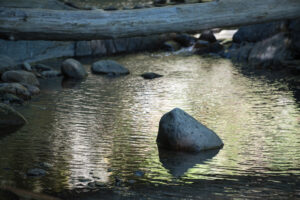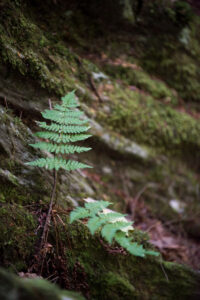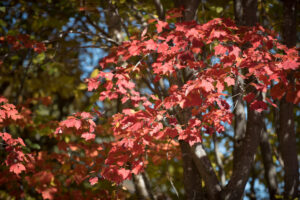Why Wilderness?
“In every walk in nature one receives far more than he seeks” – John Muir

The thing that separates wilderness therapy from all other modalities is the fully immersive experience in a wilderness setting. It is fair to ask the question, why wilderness? I first encountered this question at age 22 when I was applying to wilderness therapy companies to work as a field guide – “Why do you want to work in the wilderness?” At the time the only word my brain could find to describe it was magic. I knew, somewhere in my being, that wilderness, the natural world, facilitated the healing process. I knew what John Muir, Henry David Thoreau, Rachel Carson, Mary Oliver, and countless other conservationists, backcountry explorers, poets, naturalists, and adventures. knew; nature’s impact on humanity was profound. It was both the simplest thing and entirely inexplicable.

Recent science explains the phenomenon of nature and supports what I, and my fellow wilderness enthusiasts, sensed. Engagement with nature has a positive impact on our well-being. Time spent in nature naturally regulates our blood pressure and heart rate variability. It lowers stress, supports immune system functioning, decreases impulsivity, reduces loneliness and stimulates our drive to seek connection, inspires curiosity, causes the release of natural opiates in the brain, and creates positive emotional states (Williams, 2017). These effects are observed most strongly when we engage in fully immersive wilderness experiences, however, they have even been demonstrated in more removed settings, such as having a natural view through your office window. Contact with nature makes us happier, healthier, and more biochemically regulated. It increases our emotional and physical resilience, as well as our drive to build relationships.

At this phase in our human story, engagement with the natural world is rapidly decreasing. Many people experience minimal contact with nature (especially backcountry wilderness) throughout their lifetime. This lack of experience can cause us to feel fearful, or even to view time spent in the outdoors as a burden – the antithesis of modern comfort. Yet, what our mind may fear, our neurobiology remembers. It is the goal of wilderness therapy to provide students with an immersive therapeutic experience that promotes healthy cognitive and emotional growth. While this growth certainly requires more than nature alone, the wilderness has an important role in stimulating the regulated brain-body functioning that makes personal growth possible. It is a vital partner in the healing process for our students here at True North, and something we strongly encourage parents to explore in their own way at home to further understand their child’s growth process.
Works Cited
Williams, Florence. (2017) The Nature Fix: Why Nature Makes Us Happier, Healthier, and More Creative. New York, New York: W. W. Norton & Company.


